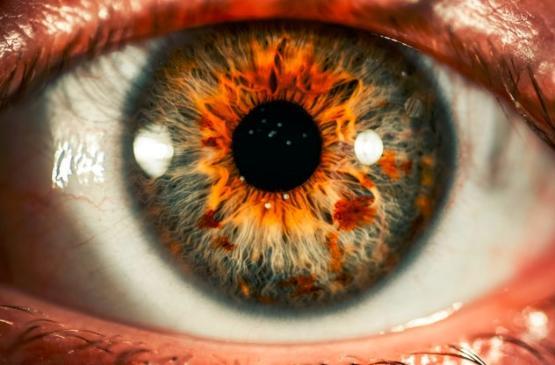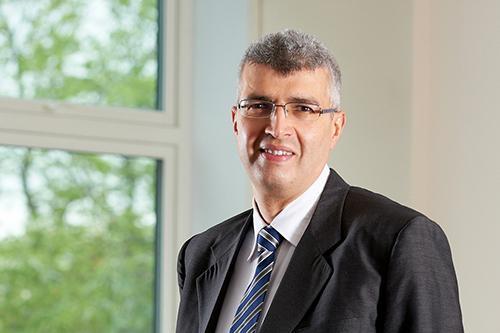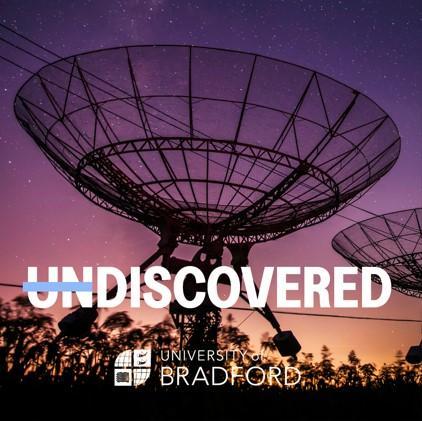AI-powered eye surgery could mean the end for glasses post cataract surgery
A revolutionary approach that uses AI to help improve cataract surgery outcomes could mean the majority of post-op patients no longer need glasses.

A Knowledge Transfer Partnership (KTP) between visual computing experts at the University's of Bradford's School of Computer Science, Artificial Intelligence and Electronics (CSAIE) and ophthalmology company CustomLensAi has produced an AI-based tool that will allow surgeons to assess potential complications in cataract surgeries and work with patients to set precise expectations of the results.
Typically, around half of all cataract surgery patients will still require glasses after their procedure but CustomLensAi claims it could cut this to just 5%.
Recently, the project was invited to joint Microsoft for Startups Founders Hub, which supports early-stage startups with resources like cloud credits, development tools, mentorship, and networking opportunities.

Dr Rami Qahwaji, Professor of Visual Computing, said: “For CustomLensAi, the brief was to create an intelligent computer system for surgeons that can predict and improve the visual outcomes of cataract surgery. The challenge is that there is a lot of variability on how the surgery can be done which can affect the outcome, and lots of different data formats from the various equipment manufacturers.
“Our role is to provide AI-based tools that can help to improve the quality of the data and extract useful information and build an application which will work at any eye clinic across the world.”
The project is making use of CustomLensAi’s network of contacts to draw upon the knowledge of a range of senior ophthalmologists from around the world to verify the accuracy of the machine learning element of the application.
The KTP is now entering its third and final year, where the product will be refined and released. The project has already been showcased at a number of international conferences.
Milind Pande, founder and CEO of CustomLensAi said: “At CustomLensAi, our collaboration with the University of Bradford is a game-changer in personalised healthcare. Together, we’re pioneering AI-driven solutions that enhance surgical precision and patient outcomes, transforming the future of ophthalmology.”
Different is what we do
The University of Bradford is a world leader in the application of machine learning and artificial intelligence. Our experts work closely with industry across the world, using academic knowledge to make a meaningful difference to people's lives.
The University of Bradford's School of Computer Science, AI and Electronics (CSAIE) offers cutting-edge undergraduate programmes including BSc Computer Science for Artificial Intelligence, BSc Computer Science, BSc Computer Science for Cyber Security, and BEng Software Engineering, as well as postgraduate programmes such as MSc in Artificial Intelligence and Machine Learning and MSc in Applied Computer Science and Artificial Intelligence. Designed to meet the demands of a rapidly evolving digital landscape, these courses are led by world-class, research-active staff from CSAIE.

About CustomLensAi
The CustomLensAi-assisted platform is designed for user-friendliness, automation, and scalability. It precisely generates a personalised surgical prescription for achieving great spectacle free vision. A distinctive feature of its platform is its adaptability, allowing for customised levels of automation, generating a bespoke surgical plan. It offers a guiding hand to surgeons and their staff by taking inputs from patients’ clinical history, examination and diagnostics to automatically generate a personalised and comprehensively detailed surgical prescription.
People
Milind, founder of Vision Surgery & Research Centre, boasts 42 years in ophthalmology with expertise in cataract, cornea, and laser eye surgeries. Trained in Yorkshire and a former Oxford lecturer, he served as consultant ophthalmologist at Hull Royal Infirmary. A trustee and past President of UK and Ireland Society of Cataract and Refractive Surgeons, Milind is a renowned innovator in his domain.
Rami helms Bradford University’s Visual Computing group and the Digital Health Tech Unit, having collaborated with giants like NASA and NHS on AI and digital health initiatives. With a background at the Digital Catapult Centre and innovative projects like AI-driven eye disease diagnosis, his expertise is vast and renowned.
Ali Maysara, an esteemed software and Medical AI engineer, has notably advanced system software in the medical AI sector. In collaboration with the University of Bradford, he’s significantly contributed to Vision Surgery’s innovative system, aiming to improve cataract and lens procedures, with the potential to benefit millions by minimizing the need for glasses post-surgery.
KTPs
Knowledge Transfer Partnerships, or KTPs, are projects where a business with an idea or specific need is connected to an academic expert at a university. The university also provides a KTP associate, generally a graduate with knowledge of the subject area who will work in the organisation directly on the project, usually for two or three years. For this project the associate is Ali Maysara, a Bradford graduate in AI and Data Science.
The academic supervising this project is Rami Qahwaji, Professor of Visual Computing, whose research interests in artificial intelligence and big data have applications in everything from space exploration to medical diagnostics, particularly the eye.
